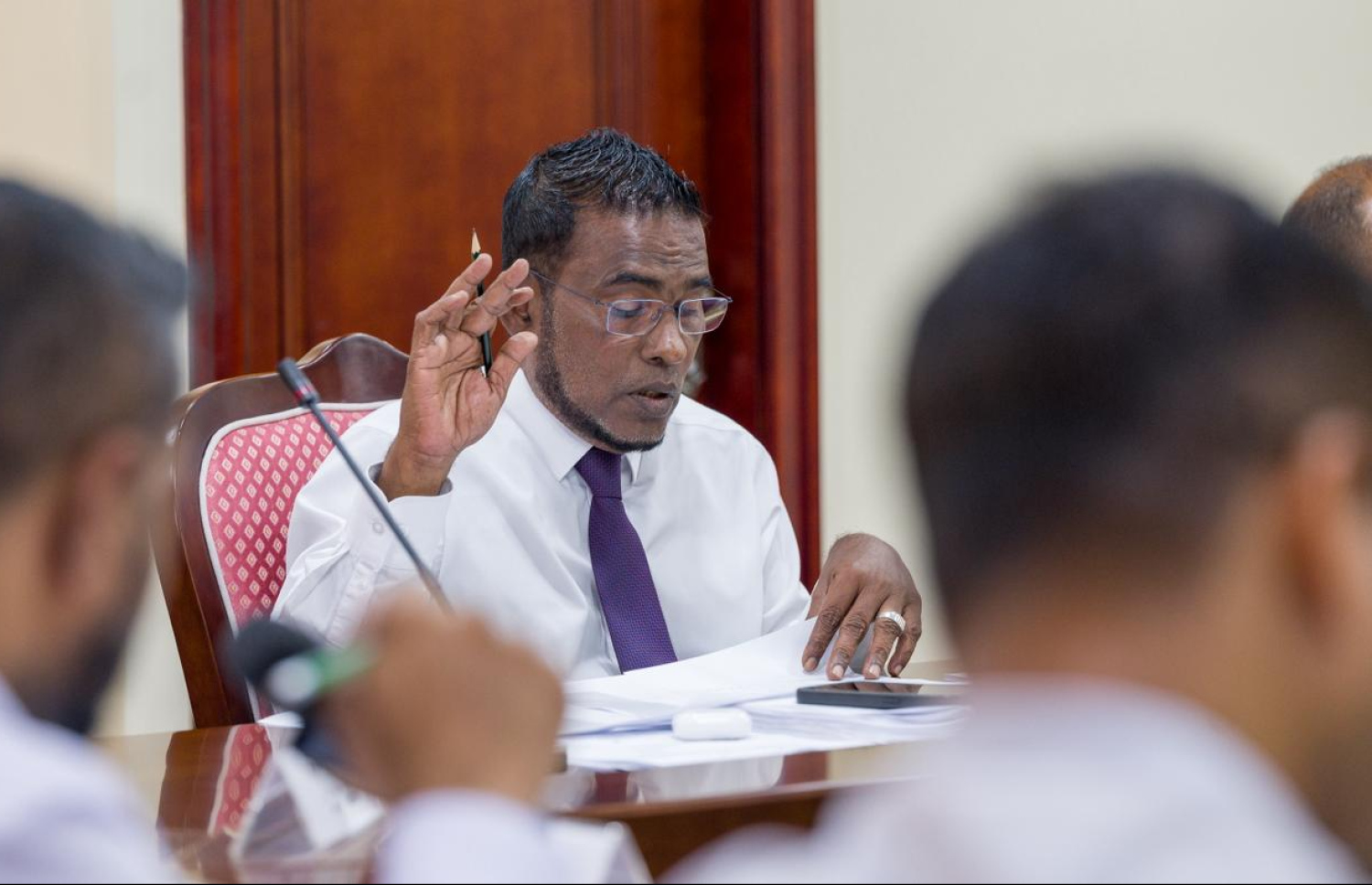Today's Committee meeting held to review the media regulatory bill has been held closed.
The bill, submitted by independent MP Abdul Hannan Abu Bakuru, has resulted in widespread opposition and concern from journalists, Maldives Media Council, Maldives Journalists Association, as well as various international organizations. Despite this, the bill was accepted by parliament in an extraordinary sitting held while parliament was officially in recess.
Although it was previously stated that the committee stage would be proceeded with consultations and discussion, today's meeting on the bill of the Independent Institutions Committee has been held closed.
The motion to hold a closed meeting was proposed claiming that personal information may be revealed in presenting public opinion on the bill. Committee Chair MP Hussain Riza said that ten to twelve comments have been received for each article of the bill.
The committee has previously cancelled consultation meetings with the Attorney General's Office, Youth Ministry and Maldives Journalists Association.

Attending committee meetings during the bill review stage, both the Maldives Media Council and Broadcasting Commission of Maldives advocated against the bill.
About twenty journalists who later spoke at a committee meeting with media representatives also opposed the bill and called for it to be rejected.
While today's committee meeting was held closed, it is believed that a vote to pass the bill may be taken today. The committee previously decided to conclude review of the bill by September 15.
Concerns regarding the bill
- Having three members appointed by the President on the media regulatory body goes against international best practices, and would disrupt the existing self regulatory system and pose the risk of government influence over media
- The bill grants the parliament the authority to dismiss members of the regulatory body who are elected by the media. This creates an atmosphere where the government and parliament can influence these members.
- The bill places 'upholding lawfully elected governments' amongst the ethical codes for journalists. Having such a stipulation in a media regulatory act would obstruct the media from holding the government accountable.
- The commission proposed by the bill is to be granted the authority to temporarily seize media outlet licenses. This creates a risk of media outlets being targeted, and of being shut down for indefinite periods. It is also irrational that one article places the authority of cancelling licenses with the courts, and yet allows the commission to temporarily seize licenses.
- The proposed commission is also granted the authority to allow Police and other such agencies to enter media premises and halt broadcasts and publishing in the instance that the commission believes there is a danger to national security. 'National security' is an ambiguous term, open to interpretations.
- The bill allows action to be taken against individual journalists. This would obstruct journalists' duties, and create an environment of fear. Penalties against individual journalists do not exist in the current system.
- While the bill states that an apology should be issued in the case that 'untrue' information is shared, it does not specify by whom or how the truth or otherwise of statements will be determined.
- As per Article 60 of the bill, the stipulations in the bill could apply to social media as well. The article states that all stipulations for news publications will apply to electronic media as well.